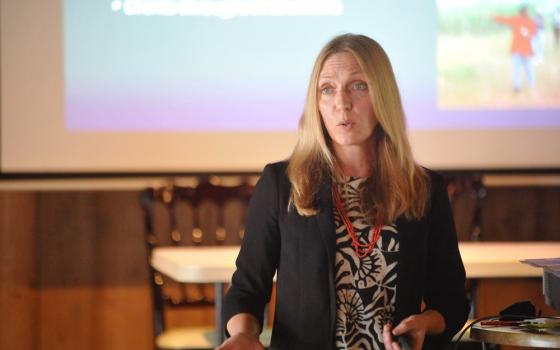
(Pixabay/Avi Chomotovski)
Before the Eucharist this afternoon, I was hearing the confessions celebrating the sacrament of reconciliation. It occurred to me how these readings of today are very appropriate as a preparation for that sacrament. Perhaps if we are intending during this season of Lent to receive that sacrament of reconciliation, it would be helpful if we listen very carefully as we try to explore the meaning of the readings.
First of all, in our first lesson, we have an extraordinary experience by Moses that helps us to understand through faith who God is. Moses is being called by God, as I mentioned before, through this mystical experience when he saw the bush aflame and not being burned up, and he heard God speaking to him, God telling him he wants him to go to free his people. Moses had been separated from them when he was an infant and lived apart because he was raised in pharaoh's household.
But now God was telling him to go so he could free the people from their slavery. Moses says, "Who shall I say sends me?" "I am," God says, "Tell them I AM is the one who is sending you." This is a profound understanding of God. God is being and that being of God is love. That being of God has no beginning, no end. God is apart from all the rest of existence. But as we know from the Letter of John, God's being is the essence of love. "God is love," John says, "Where there is love, there is God. … But this is the love I mean," John continues, "not that we love God, but that God first loved us."
This God who is from all eternity has loved us into existence. That's how we came to be because God loved us into being. We have no way to bring about our existence. The whole universe was loved into existence by God and continues. The beautiful part of this first lesson is where God says to Moses, "I have seen the humiliation of my people in Egypt and I hear their cry when they are cruelly treated by their taskmasters. I know their suffering. I have come down to free them."
God has drawn us into being and God sustains us every instant that we exist and God is watching over us, loving us every instant. In the book of the prophet Isaiah, there's a passage which reinforces this truth about God, that God is always supporting us and with us. It's in the 30th chapter where Isaiah has been pleading with the people and their leaders not to go to war, not to try to invade Egypt when they were under attack. But they disregard God and do it and they experience a terrible defeat. But then Isaiah says very beautifully about God, "God is waiting to be gracious to them."
I think one of the most beautiful descriptions of God we find in all the Scriptures: "God is waiting to be gracious to them." That's true for us. God is waiting to be gracious to us. In the Letter of St. Paul, we find Paul dealing with people who are sinners in kind of, I'd almost say, a cruel way. Paul seems to be saying that they have failed to be faithful so God will destroy them. But that's not really God. God is waiting to be gracious to us for God is like the God in the Book of Exodus who sees the suffering of God's people and wants to help them. That is who God is; God is love. God never stops loving us.
In the gospel lesson, the people that were responding to Jesus seemed to have the same idea that Paul has, in a sense. Those who were killed by Herod the king, the Galileans, they must have committed some sin that they deserved to be killed. Or when the tower collapsed at Siloam, they must have been doing evil and that's why they were killed. They understand God as a God who punishes, destroys, but that's not God. God is a God who loves us, always waiting to be gracious to us.
The other day I had a call from people to do the sacrament of anointing for someone in hospice care. I responded and went to visit them. They're a family that I knew from my first assignment, actually, many years ago when I was first ordained. I went and the person to be anointed and to receive the sacrament had been in hospice care for a while and was very close to dying, but somehow she seemed not to want to go. Many members of the family came and we celebrated the sacrament with song and prayer and it was beautiful. A few hours later she died.
Advertisement
That's happened to me before and I have a sense that sometimes people in that situation have the same experience that Isaiah describes. They come to understand God is waiting to be gracious to me. God is waiting for me because God loves me — a very peaceful and beautiful death for that person. But it's the same thing, not that we're all about to die, but that each one of us can experience God is waiting to be gracious to me.
So, if I come to be reconciled with God, God receives me with love, restores me to wholeness, and gives me the fullness of God's life in the sacraments. So during this season of Lent, perhaps it won't be quite the mystical experience of Moses, but we might too have a sense of how God is present to us, calling us to follow the way of Jesus, to reform our lives in whatever way we need to, to come to God for healing and forgiveness knowing with great confidence that God is simply waiting to be gracious to me.
Editor's note: This homily was given March 24 at St. Ambrose Church in Grosse Pointe, Michigan. The transcripts of Bishop Thomas Gumbleton's homilies are posted weekly to NCRonline.org. Sign up here to receive an email alert when the latest homily is posted.





